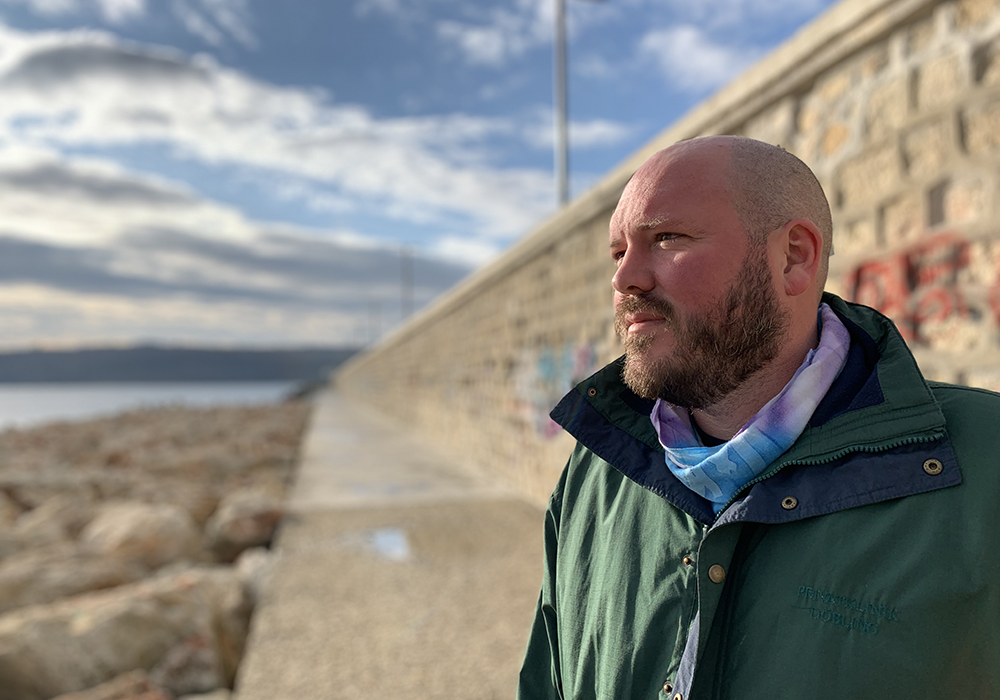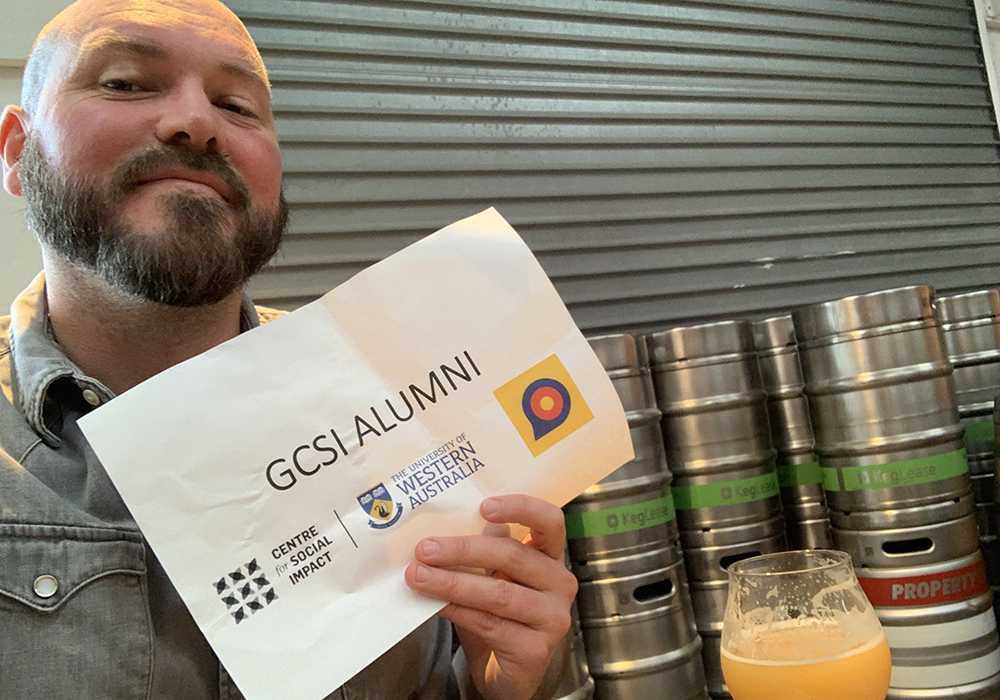Gareth Durrant: Pursuing a portfolio career


With a career spanning public health, international development, business development, design, consultancy and social impact, Gareth Durrant has had an international life - his work taking him from the Solomon Islands to Vietnam, Thailand, China, the United Arab Emirates and beyond.
He’s a Creative Consultant at Designing for Systems Innovation and Leadership (DSIL), but his CV changes as he pursues projects he is passionate about.
“DSIL works in number of different spheres and my role within that is essentially public health and social design,” he explains.
“That could be helping WHO, UNICEF and Rotary to come together to work on a polio project in Pakistan, or it could be something along the lines of community based co-design around family and domestic violence. It's kind of broad in its application.”
After high school in WA, Gareth did his undergraduate in Taiwan, a Masters in Public Health in Melbourne, and lived and worked for some years in Beijing and Bangkok.
“I was pretty committed to living and working overseas, particularly in international development and public health,” he says.
“But then I got to a point where I kind of achieved all that I could achieve and the turning point was that I felt like I was part of this colonial international development space. I didn't know what I wanted to do next, but there was a strong pull to come home.
"When I first came back to Perth [in 2018], I was pretty critical of the state of play,” he recalls, explaining that the social impact landscape felt quite stagnant.
However, Gareth hastens to add that once he started engaging with local not-for-profits and working on issues he cared about he realised he hadn’t had the full picture.
He has since found a dynamic and collegiate community and some of these connections led him to study at the Centre for Social Impact UWA in 2018.

Soon, he found himself living a “militantly minimalist nomadic life,” spending a few months in Perth, travelling overseas to meet and work with clients, then spending time wherever his husband was based – for a while, Chile, then Bulgaria on a military base.
Unsurprisingly, though, 2020 saw a major shift in the way he lived and worked.
Fortunately, DSIL were able to swiftly adapt to virtual delivery, and soon after COVID hit they coordinated an online hackathon between Syrian refugees and high school students in the US - young people came together to look at how the pandemic might affect them.
Meanwhile, Gareth found himself locked down in Bulgaria.
“We were in lockdown for a good two months, and then there was this small window where they rolled back the state of emergency, and we were allowed to travel. We were 300 kilometres from the capital, but we sorted our transport and got a flight out from Sofia through Doha, back to Perth. And then we did two weeks of quarantine here in WA.
“Lockdown was a really great time for me to strategise and organise myself. We also had a long chat about the future, and where we wanted to live. We decided that Taiwan would be a lovely COVID-free home base, and my husband was ready to do more study so he is now doing his PhD in Taiwan.”
Gareth will join him in March 2021, a year after their lives were thrown into flux. Despite the change, a lot of his work will remain similar.
“I will always work with DSIL,” he says.
“But I'm moving more towards a portfolio career anyway. There's obvious specific things that I want to work on in Taiwan locally, and I would love to still have a connection to Australian groups, too.
“I was asked recently, what is the difference between my livelihood and my social impact? And to me, it's always been the same thing. When I first graduated from university in Taiwan, my job was for a mining company selling steel to China and essentially being part of what I would call an exploitation ring around 457 visa holders and Chinese migrants, working on mining sites. That didn't make me feel good.
“And then I got a part time job working from 10pm a few nights week, hanging out by the toilet block handing out condoms for the WA AIDS Council. I only got paid 20 bucks an hour for that work but that was far more fulfilling and meaningful than selling steel work, even though that was far more lucrative.
"I think that juxtaposition early in my career taught me that I don't necessarily have to compromise between doing meaningful work and earning a living, so I've just really focused on both things ever since.”
